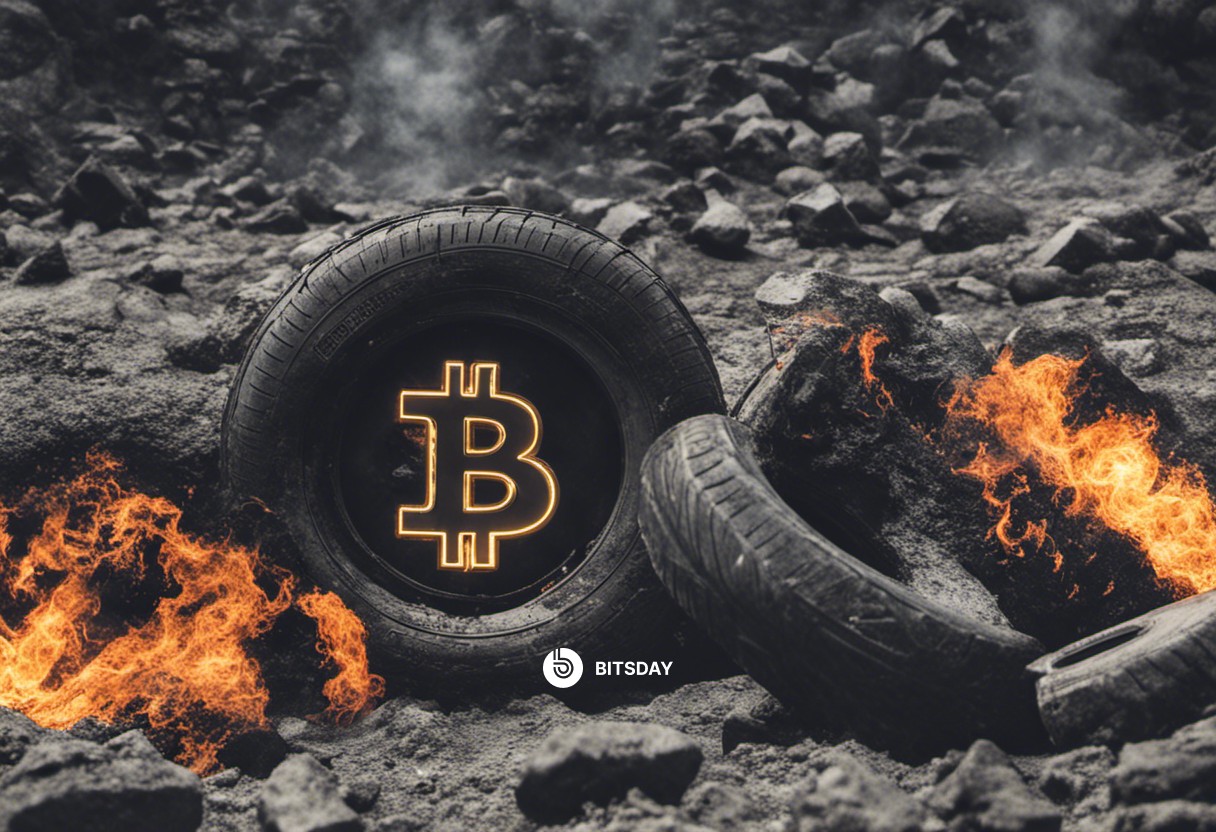Controversial Energy Methods in Bitcoin Mining

Mining Bitcoin through this method is deemed highly inappropriate
Mining Bitcoin through this method has raised significant concerns and is considered by many to be "highly unacceptable," as reported by The Guardian. Stronghold, in its pursuit of Bitcoin mining, has put forth a controversial approach that involves incinerating tires to harness the resulting energy, leading to serious environmental implications.
While the mining company asserts its commitment to waste repurposing, critics argue that this process not only contributes to pollution but also poses considerable health risks to the community. The combustion of tires releases harmful chemicals into the air, potentially linked to severe health issues such as cancer, respiratory disorders, and birth defects.
Naomi Harrington, a spokesperson for Stronghold, has shared insights with the media, emphasizing the importance of substances like tire fuel when dealing with low-energy coal refuse. Furthermore, she disclosed that Stronghold has successfully obtained permission to conduct tests on tire-derived power and is now actively pursuing authorization to utilize a substantial quantity, amounting to 78,000 tons.
It's worth noting that the U.S. Environmental Protection Agency has previously explored the idea of burning vehicle tires as a more environmentally friendly alternative to traditional landfill disposal methods.
Nevertheless, the opposition from residents of Carbon County, Pennsylvania, where Stronghold's facilities are located, remains steadfast. Carol Etheride, a local resident residing just a short distance from the Panther Creek plant, expressed her profound dismay, stating, "I was genuinely shocked by this proposal. It's a deeply concerning notion. I can't comprehend why the burning of tires, especially for the purpose of powering something like Bitcoin or cryptocurrency, which offers no tangible benefits to our local community, is deemed acceptable."
Legal experts and environmental activists have also voiced their disapproval. Charles McPhedran, an attorney associated with the nonprofit law organization Earthjustice, firmly believes that burning tires poses significant health risks to the region's inhabitants and should be considered a last-resort solution.
Subsequently, Rob Altenburg from the local environmental group PennFuture argued that Stronghold's motivation for utilizing tire-derived fuel is solely driven by cost-cutting measures.
In addition to the use of tire-derived energy, Stronghold has turned to coal waste to generate electricity for its supercomputers, a move that may raise concerns among environmentalists. However, the company has provided additional details aimed at alleviating potential public discontent. For instance, they extract coal ash from a decades-old abandoned mine in Pennsylvania, which, if left unaddressed, could pose a threat to soil and groundwater.
The extracted byproduct is then transferred to Stronghold's boiler building, where it undergoes incineration. This generated electricity is primarily dedicated to powering the company's mining operations, thereby reducing the strain on the national power grid.

Trending



Press Releases

Deep Dives







